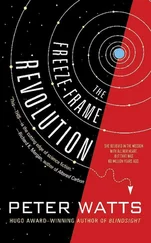Tarp rubbed his eyes with his fingers and then looked at her around the hand whose fingers rested on the bridge of his nose. He looked and looked; then he got up and went out of the plain room and waited for three minutes.
They were in a house on the western edge of Havana. It had once been rather elegant; now an old couple took care of it and pretended to be the only ones there, and the KGB used it when they wanted to get away from their Cuban allies.
He went back into the room and sat down again across the table from her. “Do you know what is happening in Moscow?” he said.
She seemed genuinely confused. “Politically?” she said. “Oh, come! Surely you know better than that! Juana, we spent ten years and a great deal of money training you, and the best you can say is, ‘Politically?’ Come, come — in the service, Juana. Do you know what is happening in the service?”
“I do not know.”
“Truly? You mean there is no gossip in Havana, Juana? Are you cut off from all communication? Have you taken a vow of silence?”
“I hear very little.”
“From your father?”
“My father is a translator, nothing more. If there is some gossip I am supposed to have heard, I would not have heard it from him.”
He got up, paced around the table as he had seen it done so often, as he had done it so often, and stood behind her. “You were trained at Brest-Litovsk?”
She nodded.
“Many who came from that school show a devotion — a personal, almost a fanatical devotion — to Comrade Mensenyi. Our good Comrade Mensenyi, who has so many devoted followers, even in Cuba and South America. Are you a devoted follower of Mensenyi’s, Juana?”
She took a deep breath. “I am loyal to the Party.”
“That goes without saying. Do you have a personal loyalty to Mensenyi?”
“We are not supposed to have personal loyalties.” Her voice was so soft that he could not have heard it from a few feet farther away. “We are not supposed to have feelings.”
“Tut-tut, that is almost Stalinist. You are out of touch, Juana. ‘Agents are human beings’ — Directive four oh nine point seven.”
“There is no such directive. You are making fun of me.”
“Are we not human beings, then?”
“ I love you !” She twisted in her chair and shouted it at him. She caught him off guard — her naked face, her passionate voice; if he had really been a KGB officer trying to trap her, he would almost have trapped himself. Tarp took a step away. “Are you ‘personally loyal’ to me, then?”
“I don’t even know who you are!”
“And yet you love me! Wonderful!” He moved around the table. “I told you when this interview began, I hold the rank of colonel; I am of the service; I am in Cuba covertly. That is all you need to know. We are in a KGB safe house — you know it, I suppose; you are of the service. I have been vouched for.”
An old crony of Repin’s had brought her to the house and had made a great show of authenticating Tarp’s identity.
He sat down across from her again. “Juana.” He folded his hands under his chin. “There is great trouble in Moscow. Great trouble.”
“The man you bowed to at the ballet.” She was limp; her face was bleak. “He is here because of it, isn’t he?”
“How do you know?”
“I saw his file on a desk at Kepel’s.”
General Kepel was the KGB chief in Cuba. “Kepel is not your immediate officer.” That was a guess, but it was an informed one.
“No.” She picked at one fingernail, destroying the cuticle. She held it up. “I love you. Look what love makes me do.”
“I hope it helps you to tell the truth.”
“It doesn’t help me do anything. It is more like being sick.”
“What were you doing at General Kepel’s?”
“He has me report to him once a week.”
“Why?”
She glanced at him bitterly. “Because he wants to screw me, what else?”
“That would be a way to greater responsibility,” Tarp said equably.
“I do not mean to get ahead on my back, thank you.”
“Well, so you were at Kepel’s, and you saw a file there and connected it with the man at the ballet. What has that to do with what I have been saying?”
“Kepel handed the file to an assistant and said, ‘Take all this Moscow woe from wit away.’ That is all.” She bit her cuticle. “ Woe From Wit is a play, you know.”
“I had heard of it.”
“You are making fun of me again.”
“So from that one remark you immediately concluded that Moscow was sending a man to cause trouble for Kepel, and then he showed up at the ballet and you saw me bow to him, and everything fit together?”
“Yes.”
“You’re lying.”
“I am not.”
“You are! You lie constantly. Have you not lied to me since that first time? Lies, all lies—”
“I have not — I swear!”
“This excrement about love, this nonsense, these lies—”
“The truth, this is truth!”
They both began to shout. She was weeping, but he had the feeling that the tears were at least partly a device, like the word love ; she could use tears as a kind of armor, he thought, as some people use an appearance of weakness as a strength. Oddly, he found himself admiring her. She was very tough.
He went on at her for another forty-five minutes. It was more than enough time for the sanitation team to switch guns and clean her apartment of his traces, but he kept on because he hoped that she would tell him something useful. He even hoped — laughing inwardly at himself for the hope — that she would prove to be innocent of any connection with “Maxudov,” the submarine, or the plutonium.
She sat limp in her chair. Her hair was lank; there were patches of sweat under her eyes and a sheen, like the result of fever, on her cheeks.
“Have a cigarette,” Tarp said. He had said nothing for several minutes and they had both sat there very quietly. Now he could see she was cold, for goose bumps were forming on her arms.
“I don’t really smoke,” she said, but she reached for the pack and took one. Her hands were shaking so violently that he had to light the match for her. He didn’t think she was frightened so much as she was reacting to her own exercise of will for the past two hours. She had been consistent. He wished they had not been to bed together, because his objectivity was affected, although whether for or against her he was not sure.
“You would do better not to smoke at all,” he said.
“May I walk around?”
“Of course.”
She got up. She held her right forearm across her belly and her left forearm vertically from her hip, the cigarette in that hand. She looked thinner, less full-breasted. There was a cot against the far wall and she stood looking at it. “What do you do now,” she said, “rape me?”
He hesitated. “I suppose that has been done in this room.” He sounded like a pedant.
“It would be such a good way to show what you think of love.” She had insisted throughout that she loved him. He believed that she believed she did, if only because such a belief was convenient to her. She blew out cigarette smoke and turned partly toward him. She was wearing a sleeveless top that was a little loose and that was far from new. She shivered.
“You use the word love too easily,” he said. “I do not love you, Juana, no.” He thought of saying not yet but knew it would be insincere.
She looked at him, shrugged, shivered. She dropped the cigarette on the floor and ground it with the ball of her flat shoe. “Say that I am infatuated with you, then.”
“You are under great stress. It is understandable that you would think yourself infatuated.”
Читать дальше












